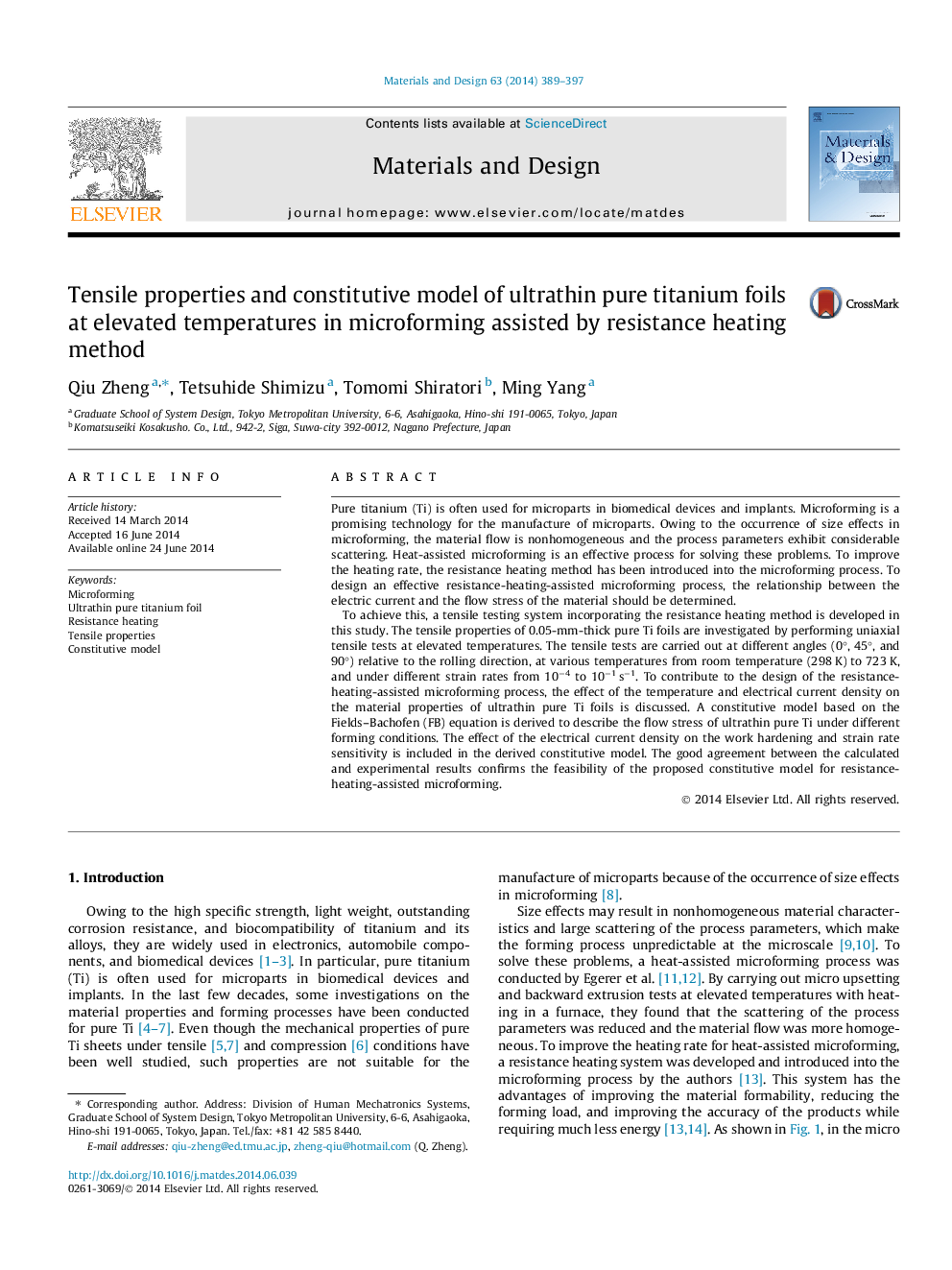| Article ID | Journal | Published Year | Pages | File Type |
|---|---|---|---|---|
| 829018 | Materials & Design (1980-2015) | 2014 | 9 Pages |
•Tensile testing system assisted by resistance heating is developed for thin foils.•Ultrathin titanium foils show less work hardening n than thick sheets at macroscale.•These foils show same strain rate sensitivity m as thick sheets at macroscale.•Effect of electric current on temperature, n, m, and flow stress is described.•Flow stress can be predicted accurately by a modified Fields–Bachofen equation.
Pure titanium (Ti) is often used for microparts in biomedical devices and implants. Microforming is a promising technology for the manufacture of microparts. Owing to the occurrence of size effects in microforming, the material flow is nonhomogeneous and the process parameters exhibit considerable scattering. Heat-assisted microforming is an effective process for solving these problems. To improve the heating rate, the resistance heating method has been introduced into the microforming process. To design an effective resistance-heating-assisted microforming process, the relationship between the electric current and the flow stress of the material should be determined.To achieve this, a tensile testing system incorporating the resistance heating method is developed in this study. The tensile properties of 0.05-mm-thick pure Ti foils are investigated by performing uniaxial tensile tests at elevated temperatures. The tensile tests are carried out at different angles (0°, 45°, and 90°) relative to the rolling direction, at various temperatures from room temperature (298 K) to 723 K, and under different strain rates from 10−4 to 10−1 s−1. To contribute to the design of the resistance-heating-assisted microforming process, the effect of the temperature and electrical current density on the material properties of ultrathin pure Ti foils is discussed. A constitutive model based on the Fields–Bachofen (FB) equation is derived to describe the flow stress of ultrathin pure Ti under different forming conditions. The effect of the electrical current density on the work hardening and strain rate sensitivity is included in the derived constitutive model. The good agreement between the calculated and experimental results confirms the feasibility of the proposed constitutive model for resistance-heating-assisted microforming.
